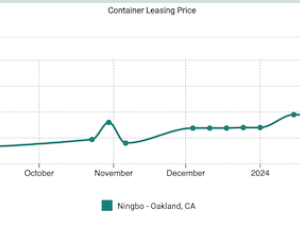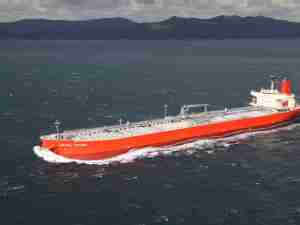While federal law requires the use of ultra-low sulfur diesel fuel (ULSD) in all off-road equipment by 2010, the first deliveries of ULSD will arrive at SCSPA container terminals in Charleston early Tuesday morning.
'This move underscores our commitment to reduce air emissions and improve air quality in the greater Charleston region,' said Bernard S. Groseclose, Jr., president and CEO of the SCSPA. 'We are switching to cleaner fuel well ahead of the curve.'
Rubber-tired gantry cranes (RTGs), the large stacking cranes in container yards, will be the first fueled with ULSD. Storage tanks that supply fuel to about 70 other pieces of on-terminal equipment such as stacking cranes and yard trucks will be filled later. The SCSPA purchases almost one million gallons of diesel fuel annually.
The Environmental Protection Agency (EPA) has mandated that all off-road equipment switch to ULSD by July 1, 2010. Traditional low sulfur diesel meets a standard of 500 parts per million (ppm) sulfur content. Ultra-low sulfur fuel at SCSPA facilities must meet a standard of 15 ppm. Prior to this move, the SCSPA used low sulfur diesel in all of its equipment. The particulate matter reduction for ULSD has been estimated at 10%.
This is the latest effort by the SCSPA to reduce air emissions. In March, the SCSPA signed a memorandum of agreement with South Carolina's Department of Health and Environmental Control (DHEC) to partner in cutting port-related diesel emissions. In this agreement, the SCSPA committed to evaluate the use of cleaner fuels at its facilities.
Other parts of the agreement include conducting an air emissions inventory of existing facilities, funding a particulate matter monitoring station to be operated by DHEC and including contractor guidelines in construction bid documents. New and upgraded equipment with cleaner burning engines will provide additional emissions cutting benefits in the future.
In addition, productivity is a key to reducing air emissions. The SCSPA is recognized as a leader in both crane productivity and trucker turn times. These strides in efficiency mean ships stay in port for shorter lengths of time and truckers spend less time idling on facilities, both of which reduce emissions. Also, the SCSPA has replaced all of its dockside container cranes with new electrical units, eliminating diesel emissions.









